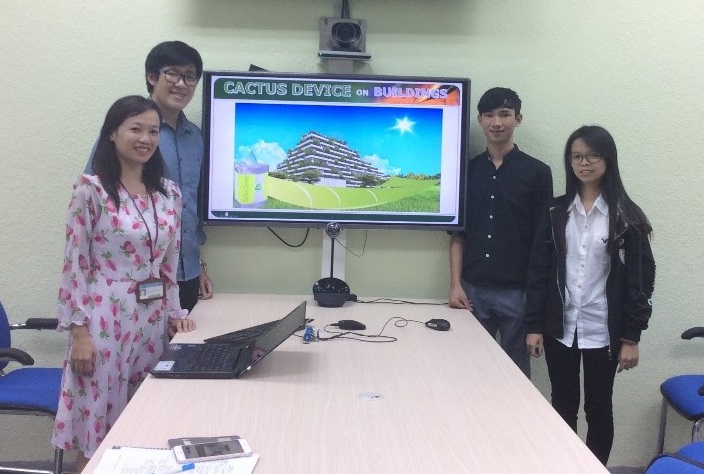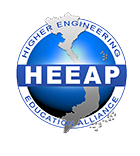A project to inspire innovative technology solutions to some of Southeast Asia’s most complex agriculture, aquaculture and fisheries challenges, the YSEALI World of Food Innovation Challenge, was announced in February by the U.S. Agency for International Development (USAID) and the Young Southeast Asian Leaders Initiative (YSEALI). The competition called for participants from post-secondary technical vocational education and training (TVET) institutions or universities in Cambodia, Indonesia, Laos, Malaysia, Myanmar, the Philippines, Thailand and Vietnam.
Ten semi-finalist teams were selected to fly to Singapore in July to participate in a boot camp-style training, hosted by Cisco and Intel Corporation, to develop their solutions. Among these teams, two were from Ho Chi Minh City University of Technology and Education (HCMC UTE ) – an academic partner of the Higher Engineering Education Alliance Program (HEEAP).
Ms. Duong Thi Cam Tu – a lecturer at HCMC UTE and also a former HEEAP cohort participant – is the instructor of one of those teams, CACTUS SPKT. The team’s project deals with the regional challenge of increasingly limited traditional water sources, which drives people to look for new water resource methods in farming.

The team designed a device that simulates a real cactus: it absorbs mist from the air and pushes it through a cooling and condensing system to form usable water. The water can be used for drinking, or the process can be expanded and the water mixed with fertilizer to feed hydroponic vegetable gardens. Moreover, the CACTUS device applies wind energy to provide power for an IoT controller, sensors and a mixing machine. Using the internet to monitor the system’s parameters saves time, labor and operation costs.
Joining the competition as one of the youngest teams, CACTUS SPKT members are enthusiastic, diligent and eager to learn. Ngo thi Hong Vuong, who serves as project leader, is a second-year electronic engineering student at HCMC. She is noticeable not only as a female student, which is not common in a technical class, but also as a very active student in academic and social activities at school. She was a member of university team joining the Asia-Pacific Robot Contest (ABU Robocon), and now team leader of CACTUS SPKT.
Sharing about the biggest challenges to the team in the YSEALI Innovation Challenge, team member Nguyen Huu Nghia said, “English is compulsory language in this competition, but it is actually our weakness, especially when compared to other teams from Malaysia, the Philippines, etc..”
Agreeing with Nghia about language barrier, Vuong added, “English is obviously a big problem to us, but we can resort to translation tools and practice English communication more. Another difficulty, to me, is that we are still young with little specialist knowledge, while there are several teams whose members are graduate students. Luckily, we get huge support from HCMC UTE and from our instructor.”
In addition to providing academic support, according to the team, Ms. Cam Tu has always motivated and lifted group spirits in depressed times and during freshmen’s first trip abroad for an international workshop.
Ms. Cam Tu participated in a HEEAP faculty development training in 2011 at Arizona State University (ASU). “The six-week training in ASU is a great experience to me, professionally and personally. After that training, I and my colleague started to build the Introduction to Engineering course which has been well received by our students,” she said. “Also, thanks to HEEAP program, I became more familiar with working in an international team so now I can confidently instruct my students in competitions like YSEALI Challenge.”
At the present, CACTUS SPKT is in its planning phase with the support from Ms. Cam Tu and a mentor assigned by the competition organizers. In October, three teams will be selected to pitch their solutions to representatives from the U.S. government and ASEAN officials in Cambodia. The grand prize for the winning team will be a study trip to technology hubs in the United States and a visit to Washington, D.C. in March.
“Innovation is the key to success,” said Vuong about the road ahead. “I do hope that my team will go further in this YSEALI Challenge so that we can make our solution a reality and thus contribute to the society. Even if we are not chosen as top three finalists, we still win a lot from this competition. All the knowledge, skills, network we get here are precious.”
Author: Ms. Tam Ngo

